
© Dave Morgan. (Click image for larger version)
Bolshoi Ballet
The Taming of the Shrew
★★★✰✰
London, Royal Opera House
3 August 2016
Gallery of pictures by Dave Morgan
www.bolshoi.ru
www.roh.org.uk
Jean Christophe Maillot’s take on The Taming of the Shrew for the Bolshoi (2014) is more of a modern fairy tale than an account of Shakespeare’s most politically incorrect play: think Cinderella and the two Ugly Sisters, combined with the Big Bad Wolf from Little Red Riding Hood. Maillot has given the Bolshoi dancers the chance to let their comic side rip, to Shostakovich’s quirkiest incidental music.
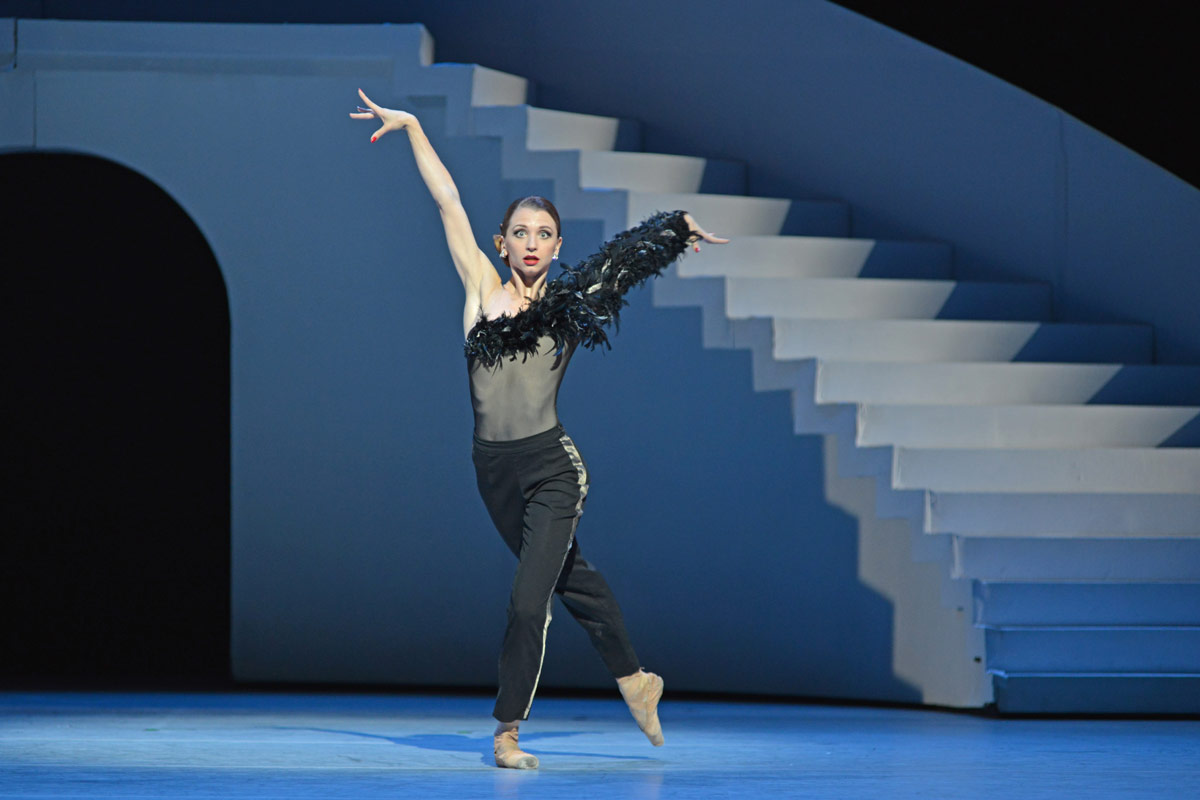
© Dave Morgan. (Click image for larger version)
The score, enthusiastically conducted by Igor Dronov, bouncing away in the pit, is a hotch-potch of film music chosen to emphasise jokey scenes and characters, with excerpts from Shostakovich’s symphonies for tender moments. The result is like a hyper-animated cartoon, telling us when to laugh or sigh. Maillot’s choreography is similarly prescriptive, distorting balletic steps and shapes with hip wiggles, jutting bottoms, splayed legs and flexed feet. Throughout the grotesqueries, though, the dancers’ classical line and clarity are ever-present: silliness is made witty and sincerity becomes the more touching in contrast.
The first half indulges in the kind of comic capers that appeal to some and not to others. Baptista’s household of prancing, prat-falling servants is introduced by the Housekeeper, Anna Tikhomirova – the equivalent of Shakespeare’s framing device involving Christopher Sly. Glamorous Tikhomirova seems more like the mistress of the household, deploring the squabbles between the sisters, virago Kate (Ekaterina Krysanova) and minxy Bianca (Olga Smirnova). Put-upon father (Artemy Belyakov as Baptista) has to marry off Katharina first, though three prospective suitors far prefer Bianca.

© Dave Morgan. (Click image for larger version)
Smirnova’s pure white long-sleeved top makes her long arms resemble Odette’s, though this Bianca is no tragic maiden. She’s a mischievous manipulator, prepared to indulge besotted Lucentio (Semyon Chudin) as her future mate. He’s charmingly simple and eagerly amenable. Bianca’s other admirers, Igor Tsvirko and Vyachislav Lopatin, are readily distracted by determined husband-hunters, including the seductive Housekeeper. All the dancers invest themselves in the roles, though their choreography is no more than ingenious caricature.

© Dave Morgan. (Click image for larger version)
Enter Petruchio (Vladislav Lantratov) in wolf’s clothing, his coat as shaggy as his hair. It’s soon evident that Kate’s bad temper is due to sexual frustration. Once he’s proved a match for her tantrums, she’s in lust for him. A time-out sequence lets us know how turned-on she is by his bad-boy virility. Maillot’s programme note insists that they recognise each other as ‘forces of nature, albatrosses among sparrows’, but the sexual attraction is that all-too-familiar cliché of the feisty woman who longs to be mastered.
At the start of Act II, Petruchio drags his bride through a forest en route to his lair. Krysanova looks as exhausted as Manon in the Louisiana swamp. There’s a daft sub-plot involving a pretend mugging by Petruchio’s gormless servant, Grumio (Georgy Gusev, making the most of a cameo role) before grateful Kate bends to Petruchio’s will. Beneath his hairy, lupine outer covering, he’s very sleek indeed. Grumio throws a veil over their ardent consummation, evidently gratifying to both.
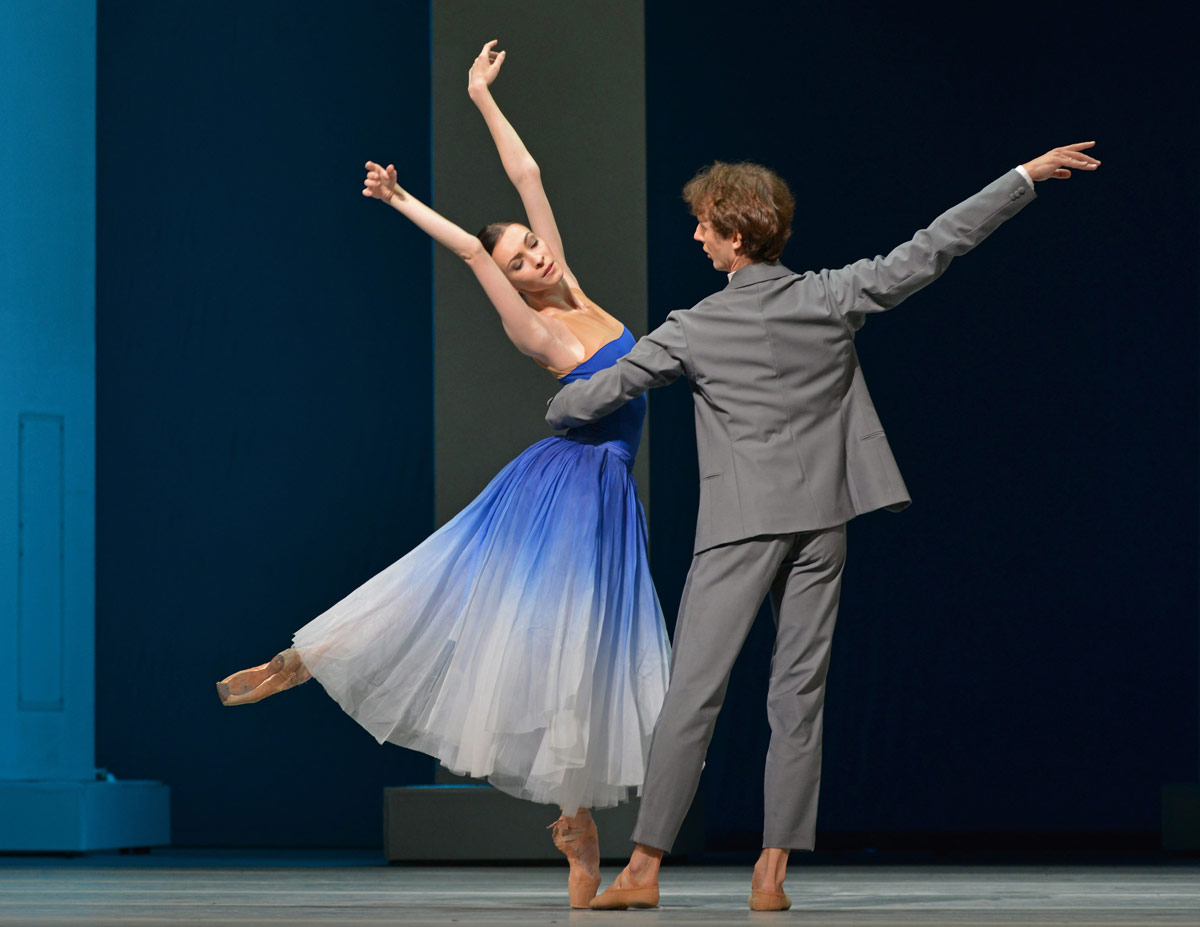
© Dave Morgan. (Click image for larger version)
Krysanova, a feisty redhead, has a splendid time succumbing, fighting back, and falling madly in love. She’s also prepared to connive with Lantratov’s desirable Petruchio (in Royal Ballet terms, a cross between Gary Avis and Irek Mukhamedov) in pretending to be biddable. They turn up at Bianca’s wedding, surprising everyone with their harmonious relationship. Father Baptista has been behaving badly with his Housekeeper, who prefers to cast her lot with Lopatin’s rich erstwhile suitor, Gremio. The other spare suitor, Tsvirko as Hortensio, has paired up with a convenient widow (Yulia Grebenshchikova). Bianca and sweetly infatuated Lucentio have a long and lovely pas de deux, revealing that he’s at her beck and call. Bianca is a delicious role for Smirnova, her naughtiness explaining how she came to be cast as Kitri in Don Quixote.
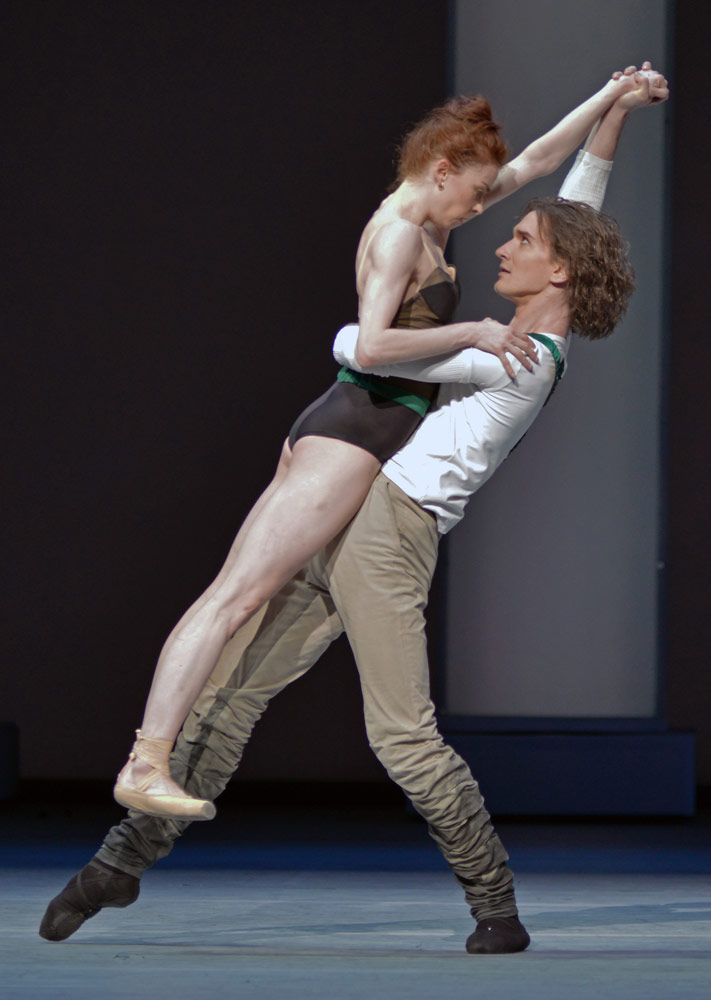
© Dave Morgan. (Click image for larger version)
Maillot’s ballet, however, belongs to Krysanova and Lantratov, who succeed in conveying that Kate and Petruchio are wildly, equally in love, however crassly they treat each other and those around them. He is horrible to his loyal servant, she is beastly to her father and sister. Only the fact that both are superb classical dancers makes their performances as comedians praiseworthy: because they impart such whole-hearted enjoyment, the audience responds without questioning what the ballet is endorsing in the 21st century. The glibness of the ending is telling. To Shostakovich’s arrangement of ‘Tea for Two’, all the couples mime pouring and sipping a cup of tea as an exposé of the power balance in their relationships. Really?

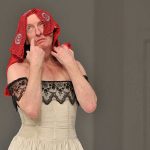
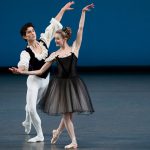
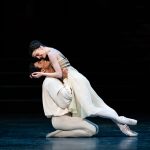
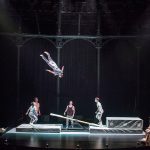

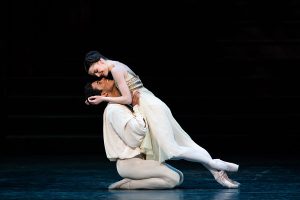
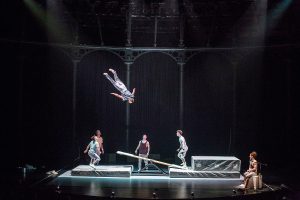
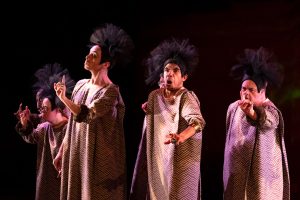
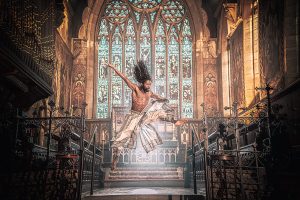
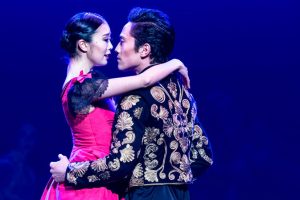
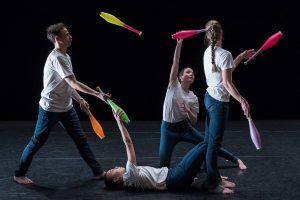
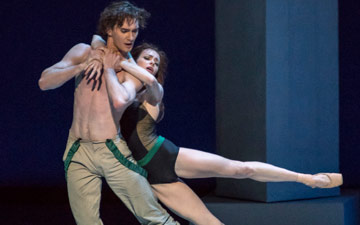
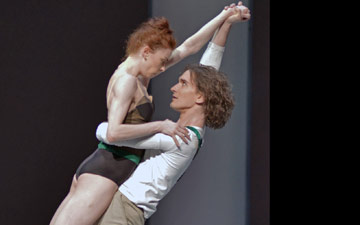
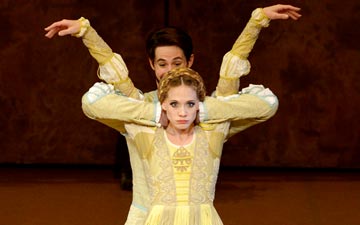
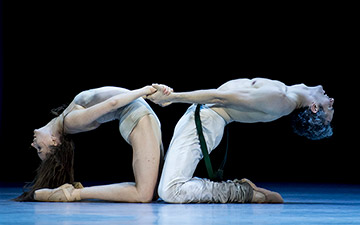
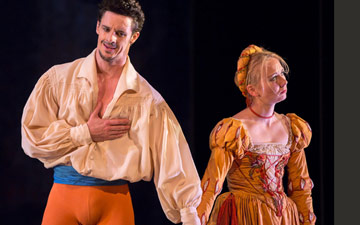
Although the choreography may be of variable quality, this production does present an opportunity to hear some of the less well known music of the genius Shostakovich. Even his film music is IMHO in a different (higher) league to the likes of Minkus and Adam. And then there’s the extracts from his 8th String Quartet and 9th Symphony. The final arrangement of Tea for Two may not be the most profound music but, hey, according to the biographies, he knocked it off in under an hour. What a man!